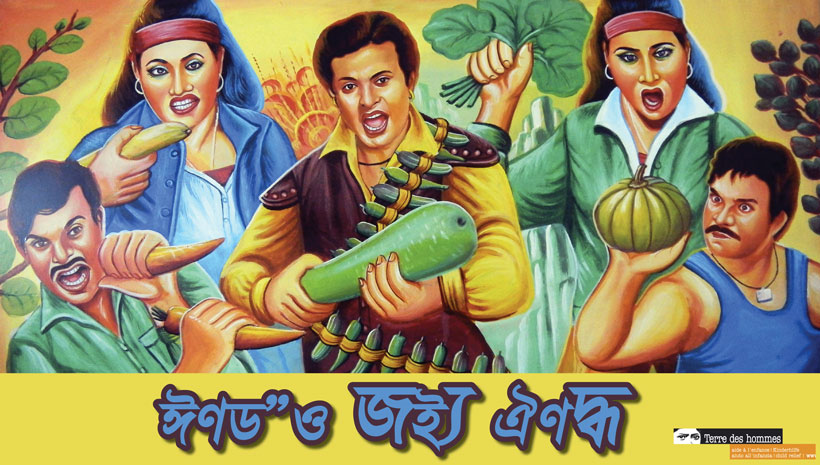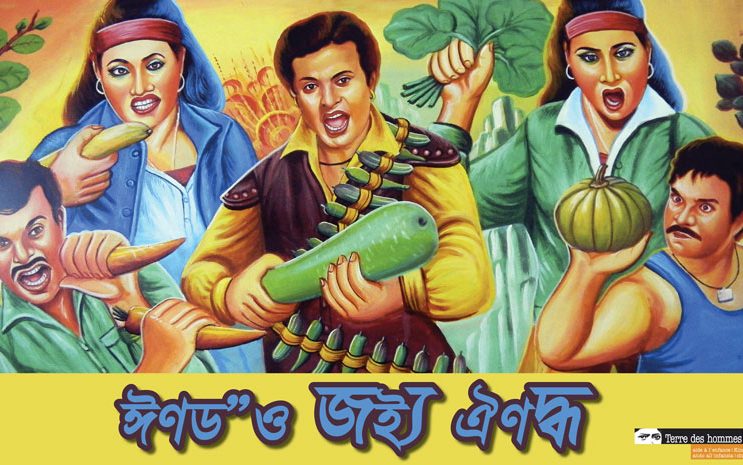Bangladesh is the most densely populated large country in the world with 170 million people in an area smaller than the UK or Uganda. The majority of the country is made up of the delta plains of the Ganges, Brahmaputra and Meghna rivers, and almost half of Bangladesh is less than 15m above sea level.
As a result, farmers have to manage flooding from cyclones, storm surges, and increasing salination of the soil. One remarkable adaptation to a changing climate, is the development of floating gardens built on beds of water hyacinth. But this technique is not widespread due to its vulnerablity to salination and storm surges.
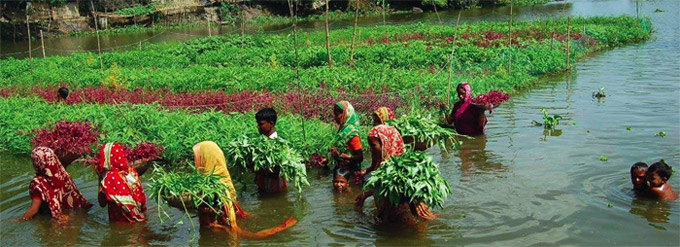
Bangladesh has high rates of infant mortality and chronic malnutrition amongst children. Terre des Hommes wanted to tackle the dual problems of malnutrition and salinity by encouraging household gardens designed to tackle these issues.
The solutions proposed were common urban garden designs: sack mounds and kitchen gardens, with the addition of clay platforms to make them more resistant to salinity and flooding.
We created modern aspirational and relatable posters to promote them, planted with vegetables that would provide a range of vitamins. The illustrations were created by Okudi Deogratius and Sam Rich.
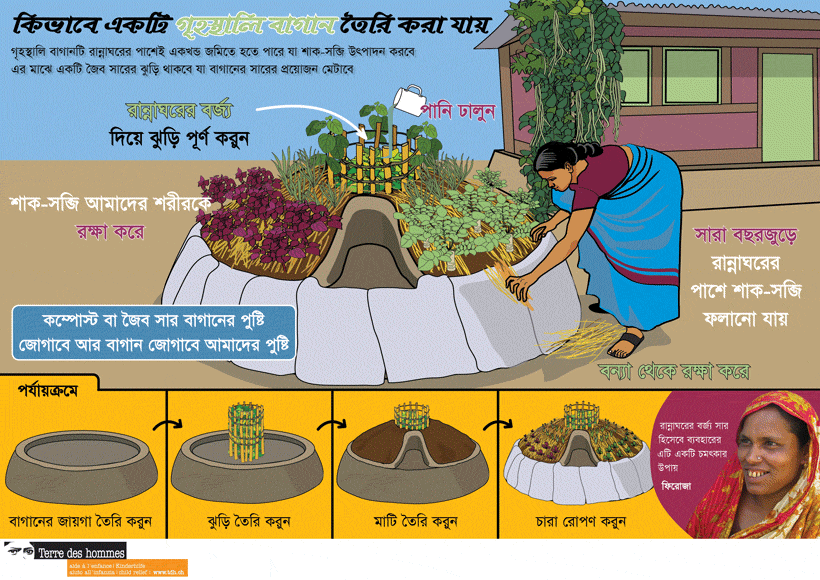

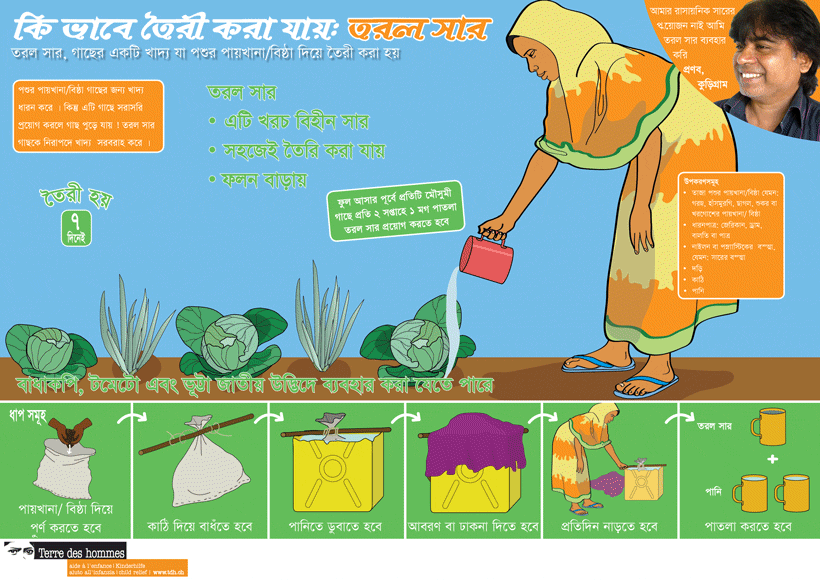
Rickshaw Art for Behaviour Change
The most popular art form across Bangladesh is the painted rickshaw. With images of movie stars in passionate embraces, or heroes fighting for their lives, rickshaws scenes are striking, emotive and comical.
It was harder than we anticipated to find a rickshaw artist to work with. Digital printing was replacing the original work of artists. Why pay an artist for a new painting, when you can just take a photo of someone else’s, print it out and stick it on your rickshaw for next to nothing?
After many hours of searching through the maze of old Dhaka, we finally knocked at the door of R. K. Daks, the last of a dynasty of artists who had been painting rickshaws for generations. Even his own children had gone into the printing.
The final composition shows our heroes stabbing with carrots instead of knives, launching gourds instead of grenades, and wearing an ammunition belt stuffed with aubergines. The slogan reads: Fight Sickness with Vegetables.
